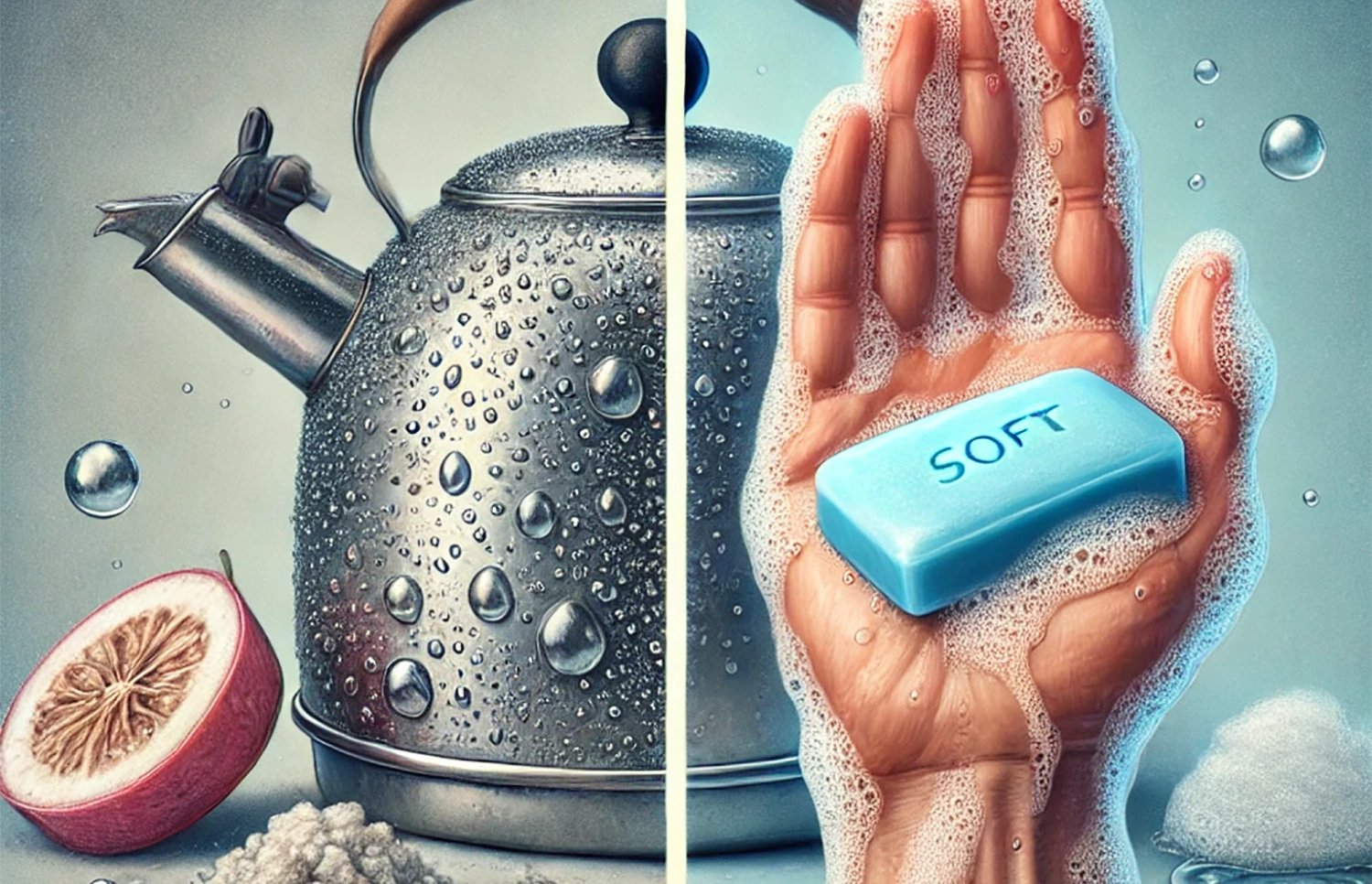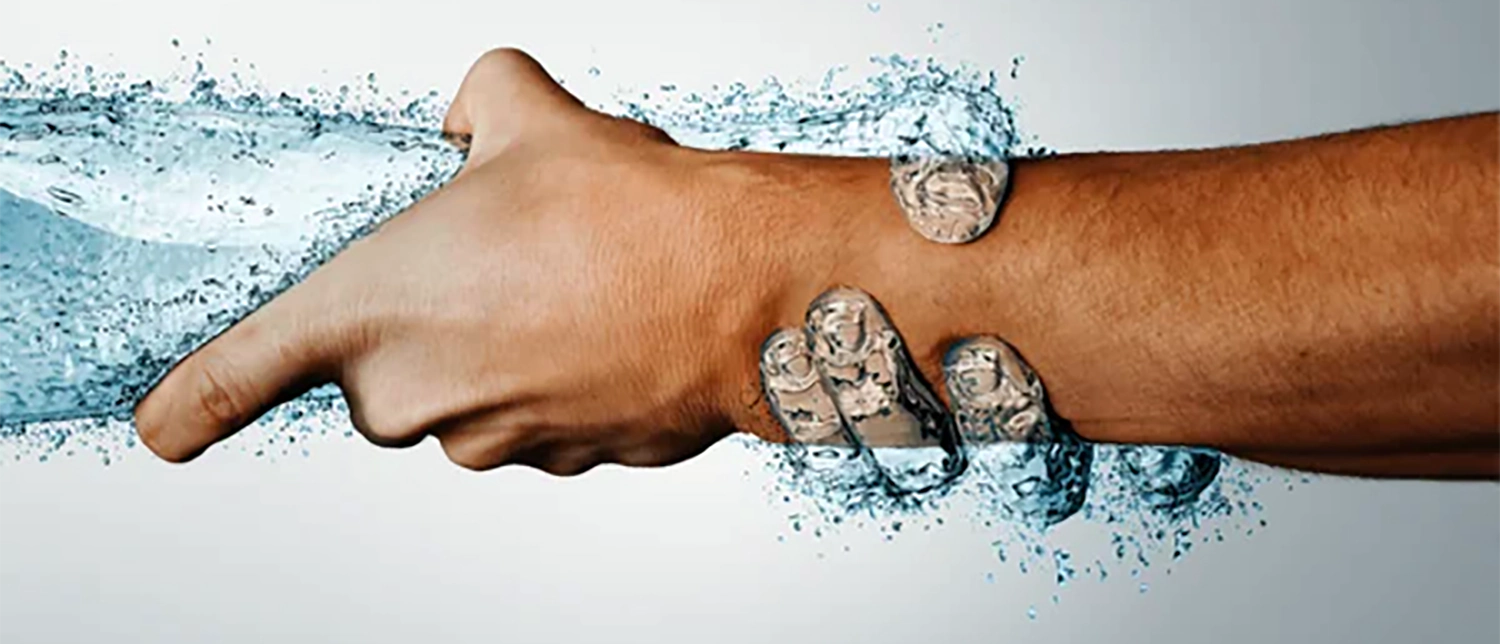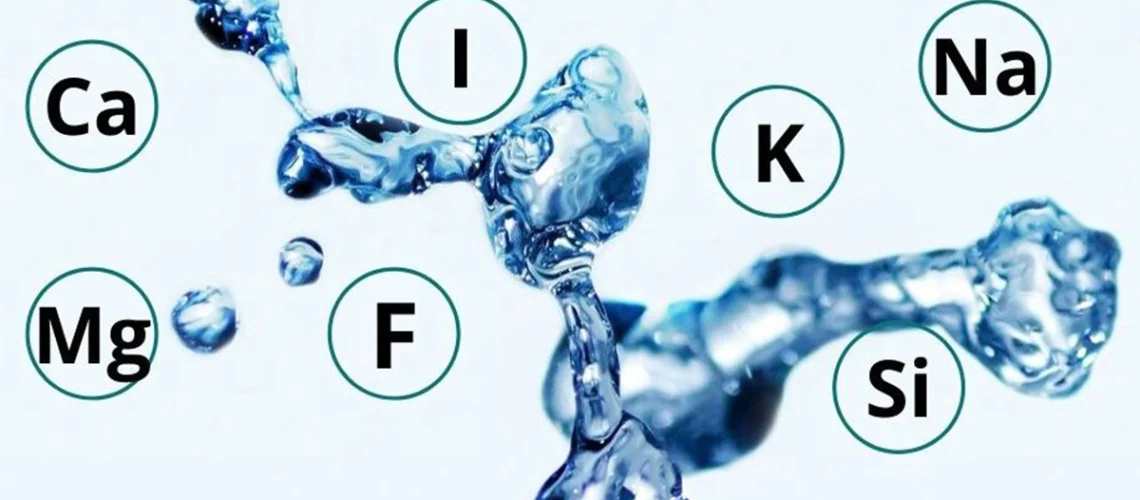Most homeowners use water every single day without thinking about what’s actually flowing through their pipes. But understanding the difference between hard and soft water can have a major impact on how your plumbing system performs—and how much you spend on maintenance and repairs.
So, what is the difference between hard and soft water? In simple terms, hard water contains high levels of dissolved minerals, especially calcium and magnesium. Soft water, by contrast, has been treated to remove those minerals. While both types of water are safe to use, the difference between soft and hard water can dramatically affect your plumbing fixtures, appliances, and daily comfort.
Contents
- 1 What Is the Difference Between Hard and Soft Water?
- 2 How to Know If You Have Hard Water
- 3 How Hard Water Affects Your Plumbing
- 4 How Soft Water Benefits Your Plumbing System
- 5 What Prevents Plumbing Damage from Hard Water?
- 6 What Is the Difference Between Soft Water and Hard Water for Your Lifestyle?
- 7 Should You Invest in a Water Softener?
- 8 Why Choose POM Plumbing for Water Quality Solutions
- 9 Final Thoughts
What Is the Difference Between Hard and Soft Water?
Hard water is water that contains elevated levels of calcium and magnesium. These minerals are naturally absorbed as groundwater passes through limestone and chalk deposits. The harder the water, the higher the mineral concentration.
Soft water, on the other hand, is water that has been processed to remove these minerals, usually through a water softener that replaces calcium and magnesium with sodium or potassium ions.
So, the key difference between hard water and soft water is their mineral content. Hard water is mineral-rich, while soft water is mineral-reduced. This simple difference has a significant impact on plumbing and household performance.
How to Know If You Have Hard Water
Many people ask, “What is the difference between soft and hard water in daily life?” You might already be experiencing the signs of hard water without realizing it. Common symptoms include:
- Soap that doesn’t lather well
- White or chalky residue on faucets and fixtures
- Water spots on dishes and glassware
- Clothes that feel stiff or look faded after washing
- Dry skin and hair after bathing
- Low water pressure due to internal scale buildup
If these issues sound familiar, there’s a good chance you have hard water in your home.

How Hard Water Affects Your Plumbing
One of the most important aspects of understanding the difference between hard and soft water is knowing how hard water can damage plumbing over time. Here’s how:
Mineral Buildup in Pipes
As hard water flows through your plumbing, calcium and magnesium begin to accumulate inside the pipes. Over time, this buildup—called limescale—narrows the diameter of the pipes, restricting water flow. This leads to reduced water pressure, increased strain on your plumbing, and eventually, complete clogs.
Damage to Water Heaters
Water heaters are particularly vulnerable to hard water. The heat causes minerals to separate from the water and settle at the bottom of the tank. This sediment layer forces the heater to work harder, reducing efficiency and increasing your energy bills. If ignored, it can lead to overheating, failure, or even bursting of the tank.
Wear on Appliances and Fixtures
Hard water doesn’t just affect pipes—it also reduces the lifespan of dishwashers, washing machines, coffee makers, and other appliances. Mineral deposits can clog valves, coat heating elements, and reduce functionality. Faucets, showerheads, and toilets can also suffer from visible scaling, requiring more frequent replacement.
How Soft Water Benefits Your Plumbing System
Now that you know the difference between hard water and soft water, it’s easy to see why soft water is generally better for plumbing. Soft water reduces or eliminates scale buildup, allowing water to flow freely through your pipes. This helps maintain consistent water pressure and improves the efficiency of your entire plumbing system.
Soft water also extends the lifespan of water heaters, dishwashers, and washing machines. With fewer minerals present, components inside these devices stay cleaner and last longer. You’ll also notice that soap and shampoo lather more easily, your clothes feel softer, and cleaning your bathroom becomes much easier—because there’s no stubborn scale to scrub.
Understanding what prevents damage in plumbing starts with understanding the difference between soft and hard water—and switching to soft water can make a noticeable difference in both plumbing performance and maintenance costs.
What Prevents Plumbing Damage from Hard Water?
If you’re wondering what prevents corrosion or mineral buildup in pipes, the answer often lies in installing a water softener. A water softening system removes calcium and magnesium before the water reaches your home’s internal plumbing.
Other steps that can help include:
- Regular descaling of appliances and fixtures
- Installing filters or conditioners at the main water line
- Using vinegar-based cleaners to dissolve surface limescale
- Scheduling routine plumbing inspections to detect early damage
Knowing how to prevent mineral buildup is just as important as knowing the difference between soft and hard water. Prevention today can help you avoid expensive plumbing repairs tomorrow.
What Is the Difference Between Soft Water and Hard Water for Your Lifestyle?
The difference between hard and soft water isn’t just about plumbing—it affects how your home functions day to day. For instance:
- Soap and detergent work better with soft water, so you’ll use less and save money.
- Clothes retain their color and texture longer when washed in soft water.
- Skin and hair feel smoother, since soap rinses off more completely.
- Appliances last longer and run more efficiently.
- Bathrooms and kitchens are easier to keep clean, with less visible buildup on surfaces.
In short, understanding what is the difference between hard and soft water can improve your comfort and reduce your household expenses over time.

Should You Invest in a Water Softener?
If your home has hard water, a water softener is often the best long-term solution. It not only protects your plumbing and appliances but also enhances your quality of life in dozens of small, daily ways.
If you’re unsure about your water’s hardness level, a plumber can test your water and offer personalized recommendations. In areas like Toronto and the GTA, where mineral levels vary widely by neighborhood, having a professional assess your system can be a wise first step.
Why Choose POM Plumbing for Water Quality Solutions
At POM Plumbing, we don’t just repair pipes—we help homeowners prevent future problems. Whether you’re dealing with the effects of hard water or considering installing a water softener, our licensed Toronto-based team offers full inspections, recommendations, and expert installations.
We’ll help you understand the difference between hard and soft water and how it affects your home, so you can make informed decisions that protect your plumbing and save you money long-term.
Final Thoughts
So, what is the difference between hard and soft water? In simple terms, it’s about minerals—and those minerals can make a big difference in your plumbing system. Hard water leads to scale, corrosion, and early appliance failure. Soft water helps preserve your pipes, reduce energy costs, and improve your everyday experience.
If you’re seeing signs of hard water damage or want to prevent future plumbing issues, now is the time to act.




